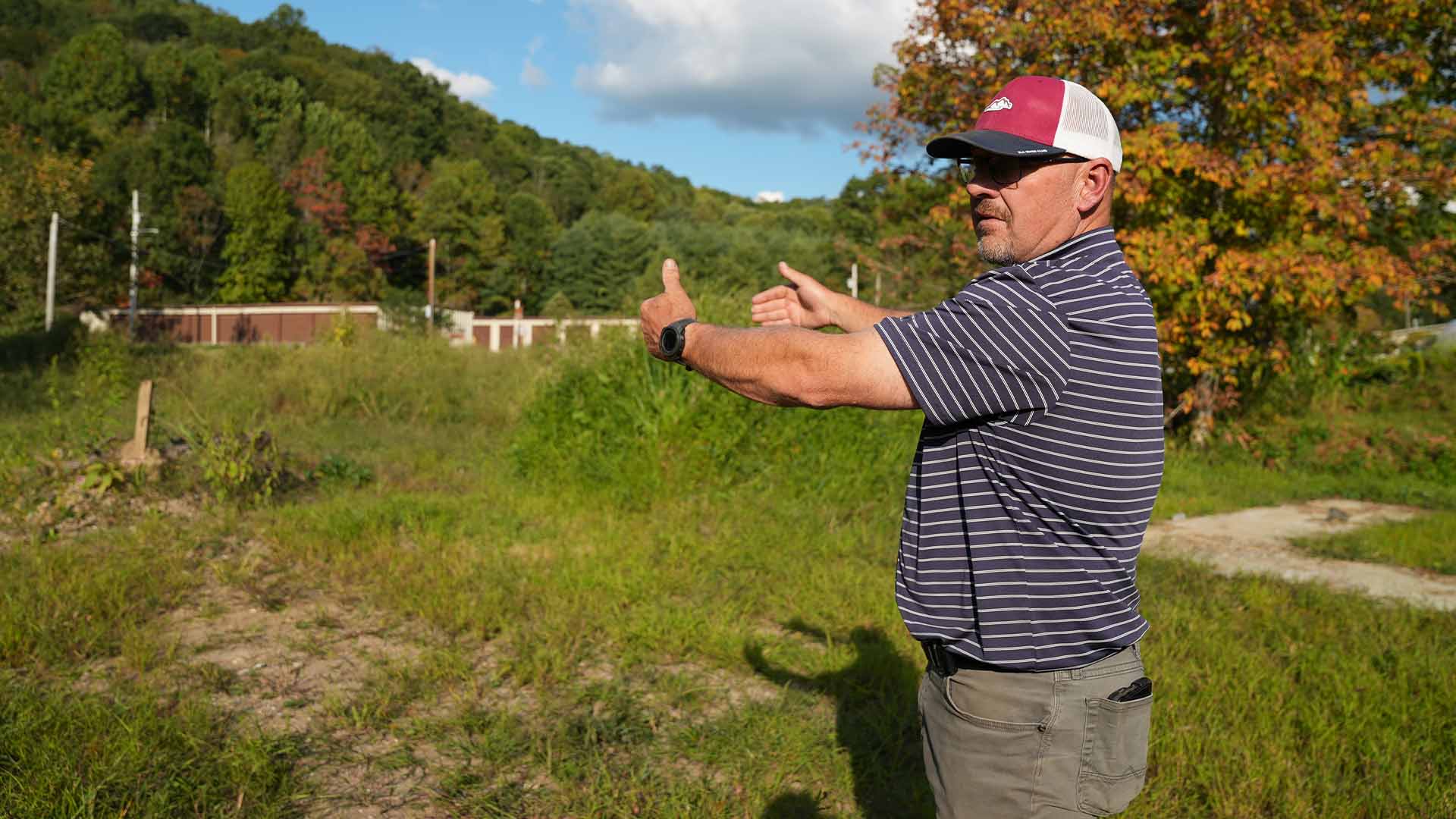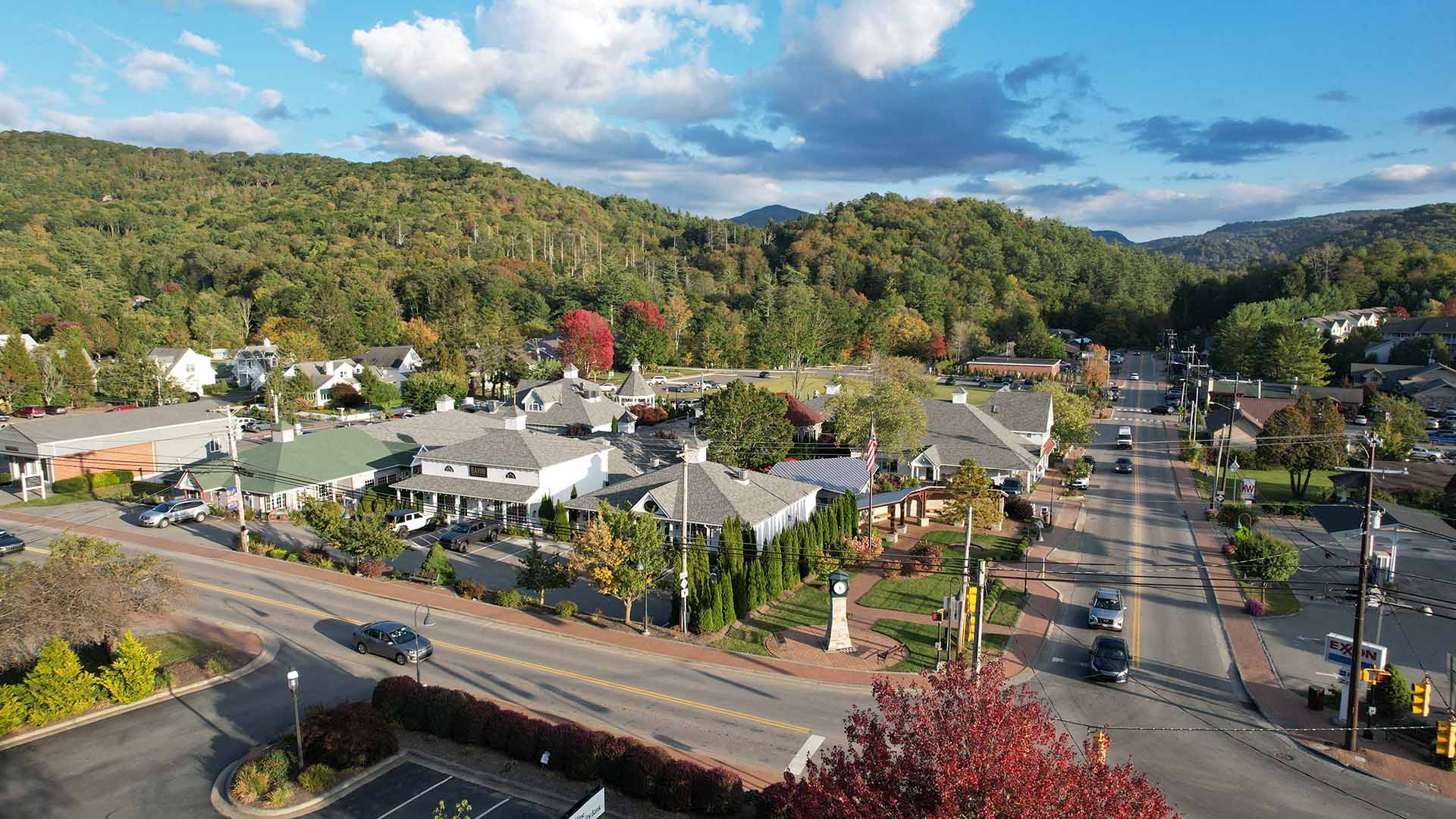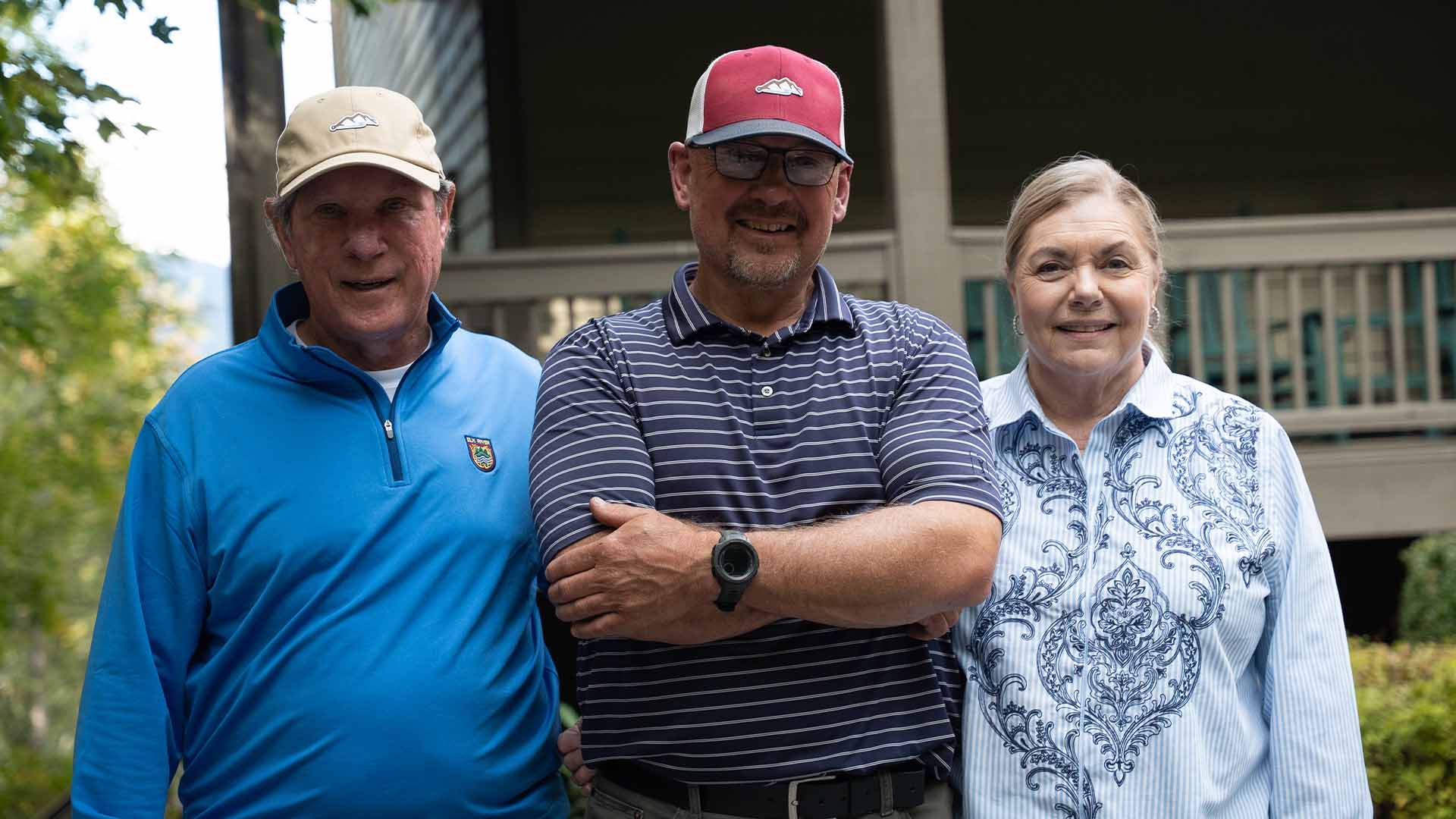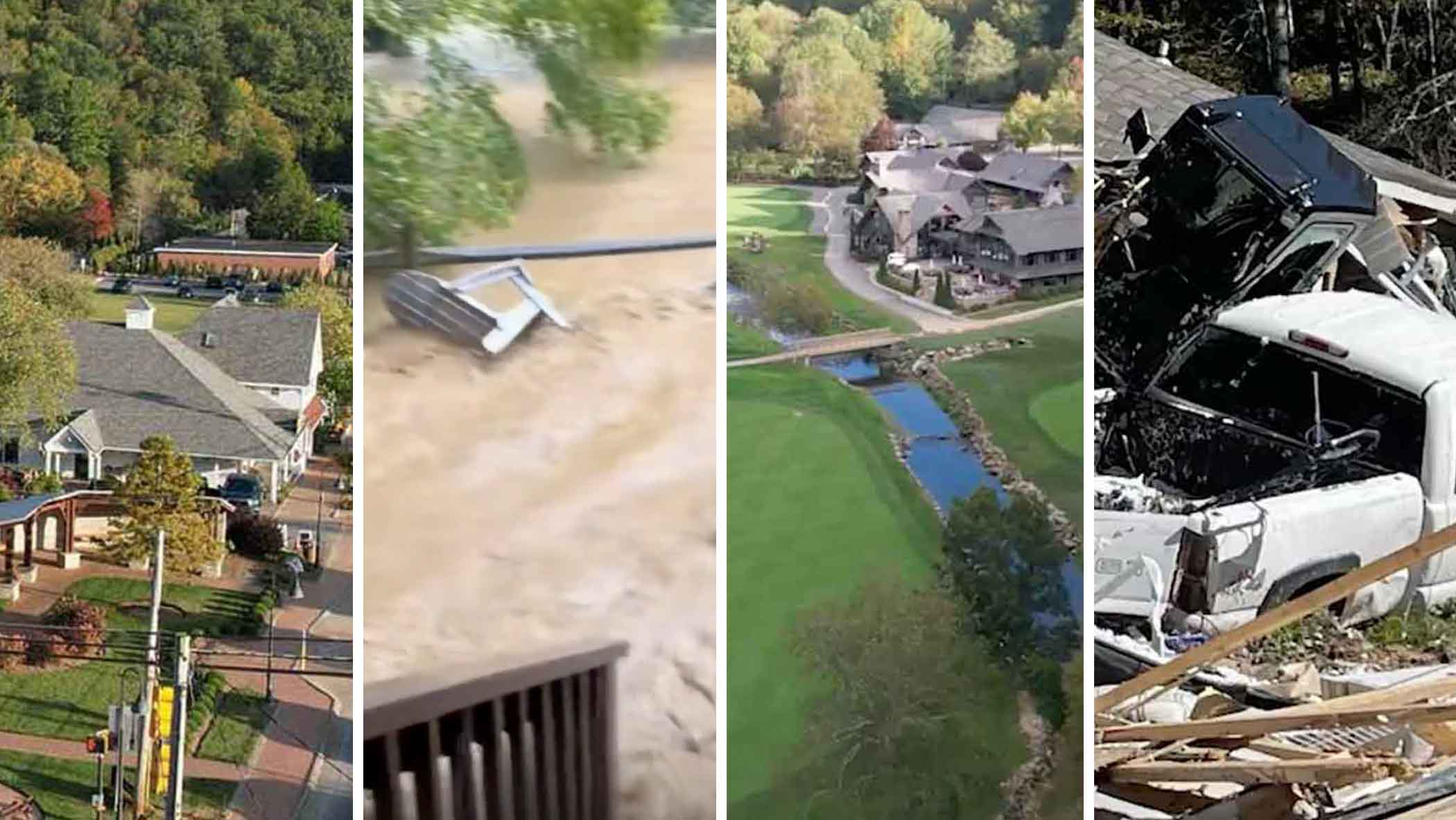At Elk River Club in the Blue Ridge Mountains of North Carolina, Jamie Jones has long been known as a tireless and punctual employee. But one Thursday afternoon a little more than a year ago, he told his boss that he’d likely be a no-show the next day.
“I just said if I’m not here by morning, you’ll know why,” Jones recalls.
Like many of his friends and neighbors, Jones expected to be hunkered at home, bracing for the impact of Hurricane Helene. The storm, which had touched down in Florida and laid waste to the Eastern Seaboard, was now on track for the rural region where Jones was born and raised.
At 55, Jones had experienced the outer edge of hurricanes before. But Helene was forecast for a head-on collision, and Jones had special cause for concern. His home stood in a designated flood plain.
As the assistant superintendent at Elk River, Jones was accustomed to early wake-ups. On this night, though, he didn’t sleep at all, sitting alert in bed with two alarm clocks set every hour on the hour in case he dozed. By midnight, heavy rains and gale-force winds arrived. Just before daybreak, the electricity went out. Checking outside, Jones saw that a nearby culvert was close to overflowing. Water was soon lapping at his elevated doorstep.
“>
Jones turned to his girlfriend, Whitney. “This ain’t gonna work,” he said.
Grabbing their dog and a few possessions, he and Whitney escaped across the road to a school parking lot on higher ground. From there, as the sun rose, they watched the land beneath them transform into a lake.
“I knew that something like that was imminently possible,” Jones says. “But seeing it happen was surreal.”
***
THE IMAGE WAS A SNAPSHOT of wider devastation. The deadliest storm to strike the U.S. mainland since Hurricane Katrina, in 2005, Helene took more than 250 lives and caused an estimated $250 billion in damage. In Avery County alone, where Jones resides, six people were killed. Hundreds lost their homes, including Jones.
In the grand scheme, he considered himself lucky. His teenage daughter, who’d been staying at a friend’s house the night Helene hit, was safe, and he still owned a small trailer where they could sleep. He also still had a steady paycheck from a club where there was plenty of work to do.
At a glance, Elk River appeared to be a place apart, a private retreat with multimillion-dollar homes, a Jack Nicklaus Signature course and a gated entrance staffed by a security guard. But there’s nothing like a natural disaster to make a mockery of artificial divides.
Helene was indiscriminate in its destruction. It ravaged Elk River, washing out paths and bridges, toppling trees onto greens and bunkers, turning fairways into rushing rivers. More than half the course was severely damaged, along with a portion of the clubhouse. With most roads closed, it was another week before Jones could get back to his job. By then, the waters had receded and a stark reality had come into focus: Elk River would need to be rebuilt, much like the region around it. Little did Jones realize, as he scrambled to piece his own life back together, how closely all those efforts would be intertwined.

In Avery County, hundreds lost their homes.
YouTube/Todd Bush
“People around here are very self-reliant,” Jones says. “But one thing I’ve learned is that there are some things in life you can’t do all on your own.”
Turn right out of Elk River, and it’s a two-mile drive on a two-lane road to Banner Elk (pop. 1,186), a quaint community that proudly — and accurately — bills itself as a “one-stoplight town.” Along with that stoplight, Banner Elk has a collection of restaurants, art galleries, bars, boutiques and an economy built on tourism. When Helene struck, peak season was approaching. Fall foliage was just starting to pop. The town’s 47th annual Woolly Worm Festival, a celebration of a furry caterpillar of the same name, was less than a month away.
“We’re very laid-back and low key,” says Nancy Owen, Banner Elk’s director of tourism. “You can kind of come here and just take a deep breath. So for the storm to hit right when our busiest time of year was getting started, it was absolutely devastating for our small businesses.”
Owen was born in Illinois but moved to Banner Elk with her family as a young girl in the 1960s and never left. Knowing the geography of the region, she expected flooding in the wake of Helene. But the scale of the damage came as a shock. On the morning after, trees and telephone poles lay splintered. Sewer lines were broken, roofs caved in. Entire homes had been swept away.
“The weird thing was the amount of debris floating through [town],” Owen says. “It was, like, oh, there goes a picnic table and here comes a car.”

Jamie Jones revisiting the site where his home was destroyed by Hurricane Helene.
Connor Federico
***
IF THINGS WERE BAD in Banner Elk, Owen suspected that they’d be even worse in lower-lying areas of the county — fears that were confirmed a few days later when it was safe enough to conduct reconnaissance.
“What I saw just broke my heart,” Owen says.
The region was in tatters, and without power and water. To compound those problems, Avery County was cut off from outside aid. Offers of assistance were pouring in. The question was how to receive them. The main roadways were blocked, and there was no nearby airport. The best option was a single landing strip at a private golf club just down the road.
On the map, Elk River sits outside Banner Elk town limits. In reality, the town and the club are linked. This has been the case ever since Elk River opened in 1984 — the two locales enjoy a kind of symbiosis. Club members shop and dine in Banner Elk, and take advantage of its cultural attractions. Every year, the course hosts a charity golf tournament to raise funds for Banner Elk’s police department.
“We’ve always thought of Elk River as very much part of our community,” Owen says.
The day after the storm, Owen drove to the club to meet with Bob Littleton, the president of Elk River’s property-owners association. She had one request. Littleton consulted with his members, then reported back: the club was happy to oblige. The runway, like the course, was a muddy mess. But of course it could be used for hurricane relief.
In the days and weeks that followed, the skies above Elk River were crowded with air traffic. The National Guard winged in. More than 600 flights touched down, from cargo planes to military choppers, carrying food, water and other critical supplies. The club cleared its hangars to make room for storage: a distribution hub for county-wide relief.

In downtown Banner Elk, hurricane damage forced shops and restaurants to close, leaving many residents out of work.
Connor Federico
“It was like LAX,” says Toni Littleton, Bob’s wife, and Elk River’s general manager and chief financial officer.
Elk River’s contributions didn’t end with airlifts.
In August, a month before Helene emerged from the Atlantic, the club had established Elk River Helping Hands, a charitable arm aimed at helping people in the area through hard times. For all its rural beauty, Avery County and the surrounding mountain region are pocked with areas of extreme poverty. Sudden setbacks — illness, job loss, a death in the family — can be catastrophic for people who are already barely getting by. Helping Hands was founded with them in mind.
The storm intensified the charity’s sense of purpose. Helping Hands redoubled its fundraising efforts and channeled the money toward hurricane relief. To date, it has provided more than $1.4 million toward helping victims of Helene get back on their feet.
“Some of the first people we talked to lost multiple family members and were facing such sad situations,” Toni Littleton says. “It kept everything we were going through at Elk River in perspective. We knew we would come back. We knew it would take time and a lot of money. But we knew it would happen. Many people didn’t know where they were going to sleep that night.”
***
JAMIE JONES HAD THAT part sorted. Within days of the storm, he’d hauled his trailer to a hilltop and set it up as a makeshift home. Most of his waking hours, though, were spent at work. In recent years, Elk River had been chipping away at a master plan, pursuing small improvements incrementally. Helene altered that approach. As calamitous as it was, the hurricane created an opportunity. With so many repairs already required, the club determined that the moment had arrived. It was time for a full-blown renovation.
In his decades at Elk River, starting in his late teens in the bag room and moving up the ranks, Jones had done almost every job there was. Now, he was handed a fresh slate of duties.
“He was here all the time,” Toni Littleton says. “He learned everything there was to know about what was going on and he kept our crew doing what it needed to do, not just on the golf course but the clubhouse and on all the other landscaping at the club.”
As winter approached, Jones began searching for new place to live. But the storm had destroyed so much and displaced so many that housing was hard to come by.
“With a kid and all, I was scratching my head thinking I had to do something quick,” Jones says.
By then, word had spread around the club of Jones’s situation. No one was more bothered by the news than Stefan Smith.

Jamie Jones with Barbara and Stefan Smith, outside their Elk River home.
Connor Federico
A Memphis native, Smith splits his time between Elk River and Tennessee, where he and his son run a successful chain of luxury automobile dealerships.
“I’ve been lucky in life, and I like to try to share that,” Smith says. “I try to meet the locals. I try to make friends with the people who work at the restaurants and clubs.”
Smith considered Jones to be among those friends. Friends should not be left out in the cold. Smith called Jones, insisting that he move into his house at Elk River.
“I know Jamie and I know that he’s good at giving help but he’s not very good at accepting it,” Smith says. “But I told him he’d be helping me out. I was going to be in Memphis all winter. It would give me peace of mind to know that someone was looking after the house.”
Says Jones, “I accepted because I knew Stefan was sincere.”
For the next sixth months, Jones had a new home for himself and his daughter. He also had a much shorter commute, down the hill to the club he was helping revive. When spring arrived, and Smith and his wife returned to Elk River, Jones moved out, but not far. The club offered him the use of a condo on its grounds.
Even as it gave, Elk River got plenty in return. A few weeks after the storm, when the club’s generator died, Toni Littleton needed a place to work. She found one at Banner Elk town hall. Local contractors reached out, offering their services pro bono. Among them was Mike Eggers, 71, who’d been building roads around the region throughout his adult life. Eggers had been busy in Banner Elk, shoring up the town’s infrastructure. Now he did the same for Elk River, helping clear debris and rebuilding one of the club’s washed-out bridges.
“The club and the community really work hand in hand,” Toni Littleton says. “Any time we need something, they’re there for us. And we try to do the same for them.”
Any time we need something, they’re there for us. And we try to do the same for them.
Toni Littleton, Elk River Club GM
Says Eggers: “That’s just how we are around here. We’re mountain people. We help each other out.”
Fall has arrived once more in the Blue Ridge Mountains of North Carolina, and a somber milestone has come and gone: the anniversary of the storm. A little more than a year later, the region remains scarred. Some bridges are still down. Some roads remain closed. And many residents are still struggling with loss.
But by some important measures, Avery County has regained its stride. Restaurants have reopened. Tourists have returned. The leaves have begun changing, brightening the hills with red and orange. In Banner Elk, the woolly worm festival is fast approaching.
Jamie Jones, meanwhile, is back to commuting. He has found an apartment across the border in Tennessee, so his daughter can be closer to her high school. It’s a roughly 40-minute drive to Elk River, where renovations are nearly complete. Jones is punctual. He shows up before daybreak.
His new living situation is temporary. This past year, a few Elk River members, including Stefan Smith, took up a collection, pooling their money — upward of $100,000 — to help Jones buy a plot of land. The property is four miles from Elk River’s gated entrance. The site has been graded. When his daughter is through high school, Jones plans to put a home there.
“Everything happens for a reason, or to get you toward somewhere better down the road,” Jones says. “The money these guys put together, it’s just amazing. I couldn’t have done it without them. The Lord blesses those who bless others. And he blessed me.”
“>







